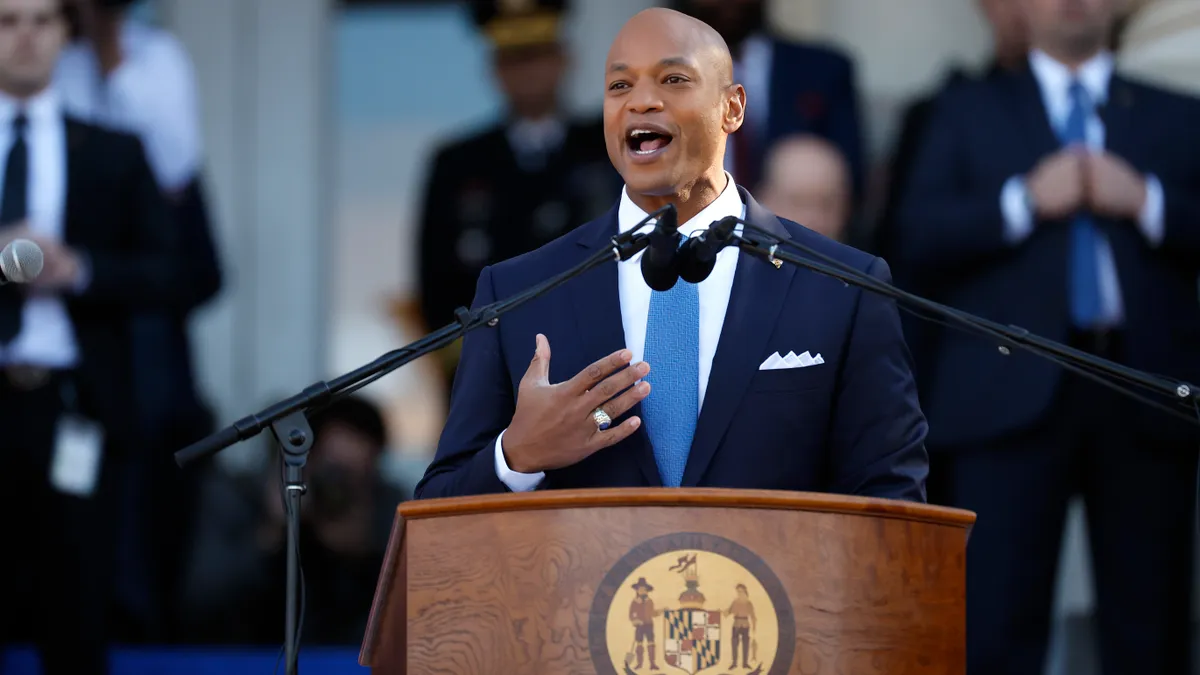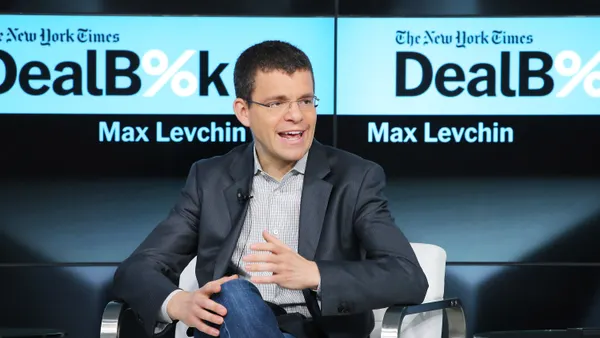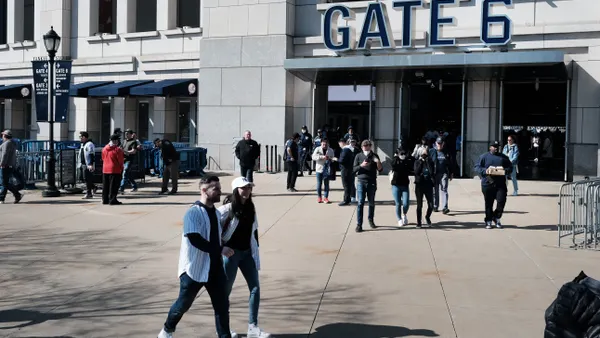Maryland Gov. Wes Moore, a Democrat, let an earned wage access bill become law, without his signature, after a months-long battle between consumer advocates and fintechs who provide such services.
The new law, which takes effect Oct. 1, requires earned wage access providers to abide by the state’s consumer loan laws and institutes licensing regulations for such companies. It also mandates that the provider offer one “reasonable” no-cost option for employees seeking to use such services.
Earned wage access, also known as on-demand pay, is a service extended to employees, typically hourly workers, that allows them to tap their earned income before a regularly scheduled payday. A pack of fintechs, including DailyPay, Payactiv and Clair, have entered the market to offer such services, with a variety of business models for making money, including from interchange fees attached to cards on which the wages are placed.
AARP, formerly known as the American Association of Retired Persons, opposed the legislative proposal early on, arguing in a press release that it would subject low-wage workers, who the association says are often older people, to “predatory financial practices and excessive fees.” The association persisted with that opposition this week after the law was signed, with AARP Maryland State Director Hank Greenberg saying in an emailed statement Thursday that the group was “disappointed” about the bill becoming law.
“AARP Maryland opposed HB1294 because it authorizes an exception to Maryland’s interest rate limits, allowing for high fees on low wage workers and creates broad loopholes in Maryland’s consumer protection framework,” Greenberg said in the statement. “We are disappointed that workers may ultimately be subject to a cycle of ‘paying to be paid’ by borrowing against their wages.”
Greenberg noted Maryland does not permit payday loans with excessive interest rates that can lead borrowers into a cycle of repaying debt with more loans until they’re forced to file for bankruptcy. “The new law creates an exception that could lead to financial downfall for low wage workers who are struggling to get by,” he said.
A number of states, including Indiana, Kansas and Nevada, have passed laws over the past two years seeking to require licensing or registration of EWA providers. While the Consumer Financial Protection Bureau had planned to impose oversight, it has backed off most such regulatory moves since the Trump administration took over leadership of the federal agency.
The industry has generally opposed state laws that subject earned wage access providers to lending statutes, but New York-based DailyPay, one of the biggest EWA firms, expressed support for Maryland’s new mandate in a statement Wednesday, praising the new law’s special lending license with an alternative interest rate measure for EWA providers.
“This is not a ‘one-size fits all’ license requirement,” DailyPay’s vice president for public policy, Ryan Naples, said in the statement. “Rather, the legislation includes some of the strongest consumer protections in the nation while also recognizing the significant benefits that EWA offers to Maryland residents.”
The National Consumer Law Center echoed AARP’s concerns about the new law in a statement Wednesday, but expressed support for the governor’s suggestion that he will seek to strengthen guardrails for consumers.
"We are disappointed that Maryland has enacted a bill that opens the door to 'earned wage' payday loan apps with multiplying fees that can run into the hundreds of dollars a year, but we appreciate Gov. Moore’s recognition that the bill is imperfect and his commitment to strengthen protections," NCLS Associate Director Lauren Saunders said in the emailed statement.
She noted that the state of New York had filed lawsuits against DailyPay and MoneyLion and Washington, D.C.’s lawsuit against EarnIn showcased how excessive fees can be problematic. DailyPay also sued the state of New York a week before the state landed its lawsuit.
Clarification: This story and subtitle have been updated to say Gov. Moore let the bill become law without his signature.












